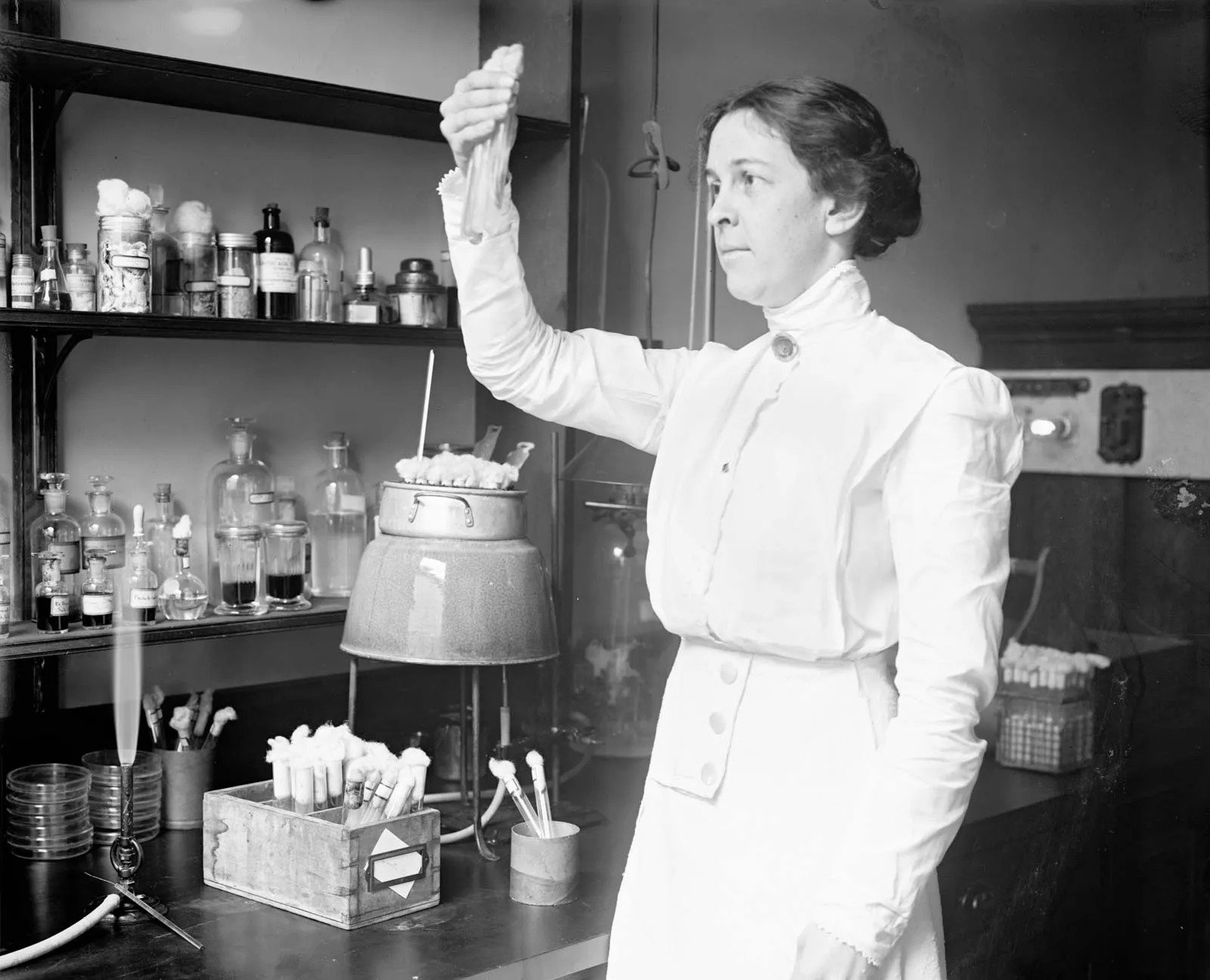Alice C. Evans: surely a man could have done it first?
In the 1900s, the mandatory pasteurisation of milk was introduced across America, preventing horrible disease for many – but who was behind the discovery that led to this legislation? Bacteriologist and public health advocate, Alice C. Evans, dedicated her life to science and drove incredible advances in knowledge despite consistent scepticism.

Alice Catherine Evans, born 29th January 1881, was a bacteriologist who, despite working in the face of constant criticism, made a landmark discovery of a disease in cows that could be transmitted to humans and her work eventually led to the mandatory pasteurisation of milk.
Throughout her career, Evans faced many challenges associated with the era. As her first job, Evans worked as a schoolteacher, one of the few professions available to women at the time, before quickly becoming bored. However, as a teacher, Evans was able to join an agriculture programme with free tuition at Cornell University, where she developed a desire to continue her study of science. She later wrote in her memoirs: 'any branch of biological science would satisfy me'.
In her pursuit of research, Evans went on to study at the University of Wisconsin, and then to work at the Department of Agriculture's Dairy Division. She supplemented her work with the study of the German language, to overcome the language barrier between her and research at the top of the microbiology field at the time.
In 1917, Alice Evans made her pioneering discovery: she showed that Micrococcus melitensis, the organism causing undulant fever, was nearly identical to Bacillus abortus bacteria, which causes spontaneous abortion and decreased milk production in cows. She demonstrated that drinking unpasteurised cow's milk could lead to transmission of the disease from infected animals to humans. In 1918, Evans published her findings in a paper titled: 'Further Studies on Bacterium Abortus and Related Bacteria: II. A Comparison of Bacterium Abortus with Bacterium Bronchisepticus and with the Organism which Causes Malta Fever'. In her memoirs, she recalled that the 'reaction to [her] paper was almost universal scepticism'. Evans faced widespread criticism from milk manufacturers and scientists alike: she was suspected of collaborating with manufacturers of pasteurising equipment, with farmers being opposed to extra costs, and male scientists were not accustomed to considering a scientific idea proposed by a woman.
The overriding sentiment from the scientific community in response to her findings was: If her findings were true, why hadn't someone else found them first? This loaded statement highlights the expectations that a male scientist would have been able to achieve her discovery previously, and demonstrates the lack of trust in a female scientist without a PhD. Despite researching at a time when a PhD was not a prerequisite for progression, it still held a lot of weight.
Her discoveries came at a cost: in 1922 Alice Evans contracted undulant fever, and suffered from the disease's effects for more than twenty years, but was able to use this to make a personal connection to patients who were implicated by her research.
In the late 1920s, undulant fever was recognised around the world as a widespread and dangerous disease. As a result, there was the introduction of mandatory pasteurisation of milk in the 1930s, and the subsequent near-elimination of undulant fever - today, undulant fever is likely a disease that few people have heard about (I, for one, was unaware of the disease before researching Alice Evans). Her findings, and perseverance in having her research accepted by the community, have saved fortunes in public health costs and many lives, as well as reduced annual losses for livestock and dairy industries from lowered milk production and reduced breeding efficiency.
Alice Evans was hired by the Public Health Service's hygienic laboratory to continue her study of the disease. This step in her career provides a great example of the power of supportive and encouraging male mentors; Evans was hired by George W. McCoy, the chief of the Hygienic Laboratory, making her one of the laboratory's first women on the scientific staff.
Alice Evans was elected the first female president of the Society of American Bacteriologists (now the American Society for Microbiology) in 1928, paving the way for other women to become president of the society. Additionally, she was the first woman to earn the University of Wisconsin's graduate scholarship in bacteriology and the first woman to hold a permanent post as a scientist at the Department of Agriculture's Dairy Division. Throughout her career, Evans helped female scientists to be taken seriously and praised for their research, and importantly fought against women being stereotyped into supporting or background roles.
Her legacy includes:
- The ASM Alice C. Evans award for those who have made outstanding contributions towards women's full participation in microbiology.
- The establishment of a tuition fellowship at Federal City College in Washington D.C. was set up through the American Association of University Women (AAUW), which now offers a vast array of fellowships, grants and awards.
- An Inductee of the National Women’s Hall of Fame (18 years after her death in 1975), a testament to Alice Evans' influence on other women and her country - she lectured frequently on female career development following her retirement in 1945.
Author: Alice
Sources:
1. Alice. C. Evans. Memoirs (unpublished). Washington, D.C.; 1963.
2. Colwell RR. Alice C. Evans: breaking barriers. Yale Journal of Biology and Medicine. 1999;72(5):349–56.
3. Evans AC. Further studies on bacterium abortus and related bacteria: II. A comparison of bacterium abortus with bacterium bronchisepticus and with the organism which causes Malta fever. Journal of Infectious Diseases. 1918;22(6):580–93.
Image sources:
1. https://www.britannica.com/biography/Alice-Evans
2. https://www.womenofthehall.org/inductee/alice-evans/